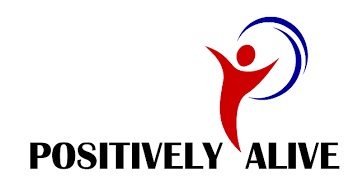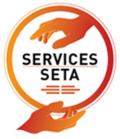Life Skills Training Modules
 Module A
Module Aa.Mental fitnessb.Emotional fitnessc.Spiritual fitnessd.Balancing your wellness wheel
a.Healthy state of mind enhances one’s ability to deal with:
i.Stressii.Angeriii.Fatigue
a.Planning for the futureb.Short term goalsc.Long term goal settingd.Career planninge.Building a vibrant career
a.Every action has a consequenceb.Attitudes to career focus and the potential outcomes
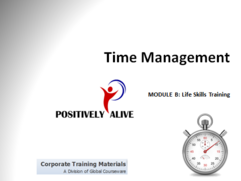 Module B
Module B
a.Setting smart goalsb.Visualisingc.The urgency/importance matrix
a.Nine ways to overcome procrastination
a.When the storms hit
a.De-clutterb.Managing workflowc.Using a diary effectively
a.When to delegateb.Selecting to whom and how to delegate for successc.Keeping control
 Module C
Module C
a.Changes in last two decadesb.Options nowadays
a.Alcohol and drugsb.Healthy usec.What constitutes abused.Where to find help
a.Tips for healthy exerciseb.Recognising exercise addictionc.Steroid use and its consequences
a.Internet, Facebook, Twitter, i-phones, tabletsb.Advantages and dangers of the new technologiesc.Healthy use of technologyd.Cell phone etiquettee.Unhealthy use – how to recognise itf.Unhealthy use – what to do
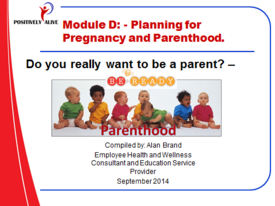 Module D
Module Da.Should I have a baby? Are you ready to have a baby?b.The implications of pregnancy (More than 9 months!)c.The implication of having a baby
i.Financialii.Body changeiii.Sex lifeiv.Careerv.Familyvi.Friends
a. Roles and responsibilities of parentingb. Making the connection! What happen now!
i.Infant/Toddlerii.Pre-School
c.Why do Children Do What They Do?d.Finding help and support structures.
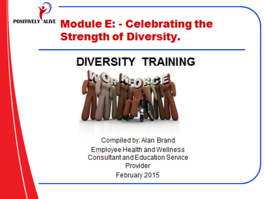 Module E
Module E 
Celebrating the strength of diversity (1 day)
This module would assist young people to understand diversity, address some of the prejudices and misunderstandings surrounding difference, and understand better how to embrace diversity. They will also come to comprehend the issue of sexual harassment in the workplace, and the importance of respect for all arising out of respect for self.
1. Recognising the full range of diversity in South Africa:
- Race
- Gender
- Foreigners and xenophobia
- Sexual orientation
- Disability
- Embracing diversity
2. Sexual harassment
- Defining sexual harassment (the law)
- How to avoid it
- Seeking help
3. Respect for others
- Respect for self
- Respecting older people and parents
- Respect for authority in the workplace
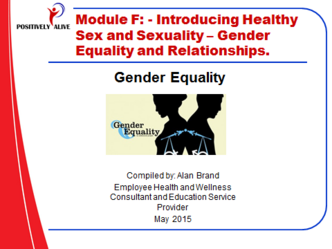 Module F
Module F 
Module F: Gender Equality and Relationships in the Workplace (1 day)
Short Course Name: Equality + Relationships @ Work
This module will examine the range of relationships that exist in the South African culture, the hallmarks of healthy working relationships and the importance of support structures and assertiveness in relationships at work. It also would help young people understand the complexity of gender. The course will also explore the concepts sex, gender and sexual orientation and relationships towards others and ourselves.
- What is sexuality?
- Defining important terms
- Sex
- Gender
- Sexual orientation
- Understanding of how sexuality and practice has evolved over time
- Sexual response cycles
- Women
- Men
- HIV and other sexually transmitted infections (STIs)
- Risks
- Practising safer sex
- Seeking help
- Gender equality at workplace
- Equality in the workplace
- Respect for others and respect for self
- Basic human rights and equality
- Bill of rights of South Africa
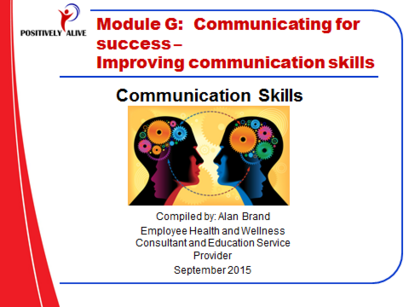

Module G:
Communicating for success – Improving communication skills (1 day)
Short Course Name: Communication Skills
This module would help young people understand the importance of effective communication, the role that successful communication has in the development of one’s career and importantly that good and effective communication leads to success.
- What are important communication skills for a job interview?
- Your CV got you invited to a job interview it means the potential employer/manager believes you are a suitable candidate for the position so:
i.How importance is the first impression you make when arriving for the interview
ii.Non - verbal skills.
iii.Body language
iv.Dressed for success
- Why good candidates often don't get the job and why poor candidates sometimes scrape through and are offered the position.
- Solving any potential difficulty you may face during a job interview.
- Introduction to written communication skills:
- Compiling an e-mail
- Responding to an e-mail
- Management of e-mail response times and effective e-mail data management.
- Introduction to verbal communication skills:
- Conveying your message effectively.
- Being clear and unambiguous when delivering your message.
- Effectively receiving feedback from others.
- Ensuring a clear message
- Choosing the correct communication language for specific audiences:
- Communicating to peers versus seniors and others
All the above formal training modules are outcomes based and are aligned to unit standard.
To schedule these training module contact Alan Brand from Positively Alive 
